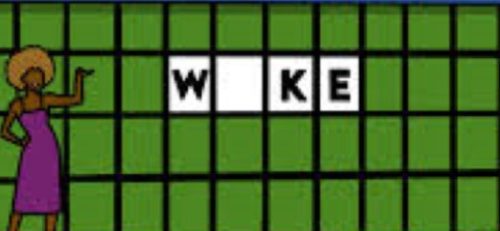This is a guest post by Eamonn McDonagh from Z Word
The other day, just after the terrorist attack in Mumbai got underway, I thought about writing a very brief post along the lines of “How long will we have to wait before the first op-ed piece that tries to pin at least some of the ultimate blame for this on Israel?”. The answer turns out to be “Only a couple of days”.
Writing – where else? – in the Comment is Free section of The Guardian William Dalrymple pins the prime blame for the Mumbai atrocities not on those who carried them out but on the US, the UK, India, and, of course, Israel. The following two paragraphs carry the main force of his argument.
This probable Pakistani origin of the Mumbai attacks, and the links to Kashmir-focused jihadi groups, means that the horrific events have to be seen in the context of the wider disaster of Western policy in the region since 9/11. The abject failure of the Bush administration to woo the people of Pakistan and Afghanistan away from the Islamists and, instead, managing to convince many of them of the hostility of the West towards all Muslim aspirations, has now led to a gathering catastrophe in Afghanistan where the once-hated Taliban are now again at the gates of Kabul.
India meanwhile continues to make matters worse by its ill-treatment of the people of Kashmir, which has handed to the jihadis an entire generation of educated, angry middle-class Muslims. One of the clean-shaven boys who attacked CST railway station – now named by the Indian media as Mohammad Ajmal Mohammad Amin Kasab, from Faridkot in the Pakistani Punjab – was wearing a Versace T-shirt. The other boys in the operation wore jeans and Nikes and were described by eyewitnesses as chikna or well-off. These were not poor, madrasah-educated Pakistanis from the villages, brainwashed by mullahs, but angry and well-educated, middle-class kids furious at the gross injustice they perceive being done to Muslims by Israel, the US, the UK and India in Palestine, Iraq, Afghanistan and Kashmir respectively.
A couple of points to note…
1.
Dalrymple describes those who deliberately slaughtered dozens of people in Mumbai as boys and kids. Boys and kids are not adults. They haven’t reached the age of majority and cannot be held responsible for what they do. That responsibility must lie with others who either directly provoked them into doing what they did or, in the best case, created a set of circumstances which allowed them to do it.
2.
Dalrymple sees the killers as being motivated by what they perceived as injustices suffered by Muslims in four specific locations. He doesn’t seek to interrogate these perceptions by asking, for example, why such people were so unmoved by the fate of other Muslims who have been slaughtered in droves in Darfur in recent years or whose lives are ebbing away in the jails of the Iranian and Syrian regimes, to give just three examples, and yet were so profoundly troubled by the fate of Muslims in those four places only.
3.
He implicitly accepts that their motive for riddling commuters – among them, surely, Muslims – with bullets at one of Mumbai’s main railway stations, for going to considerable lengths to find and murder Jews, for shooting up a crowded café, for murdering members of the security forces of a secular democracy and much else besides was nothing less than a hatred of injustice.
3.
Even if we were to accept his analysis of the terrorists’ motivations at face value, Dalrymple’s overall argument is fatally weakened by its failure to seriously engage with the question of what methods may be legitimately employed to combat situations of injustice and whether and in what circumstances these might include a resort to violence. He does describe the attacks as “murderous” and “horrific” but with a marked air of resignation, as if horrific murder was the inevitable and natural response of those presented with situations of injustice.
4.
He also accuses the West in general and the Bush administration in particular, of having by their behavior convinced many Muslims that they are opposed to all Muslim aspirations everywhere. He doesn’t entertain any questions about the extent to which this belief may be true or how it squares, for example, with the United States under George W. Bush having been the chief midwife at the birth of Kosovo or to what extent it might or might not be shared by those Muslims of North East Iraq that are normally referred to as Kurds.
5.
Dalrymple paints a portrait of some Muslims who are exquisitely sensitive to certain instances of injustice committed against their coreligionists and completely indifferent to others, whose natural, though, of course, horrible and murderous reaction to these instances is to attack unarmed civilians on the streets of a great city with automatic rifle fire, who can’t really be held responsible for what they did as they were boys, not men, and because we – the West, the UK, India and Israel – didn’t do enough to placate their feelings of anger about certain situations they perceived as unjust. In effect, we made them do it.
6.
Dalrymple’s portrait of the killers, as well as the sections of Muslim opinion he sees as supporting them, is based on a profound failure to treat them as morally autonomous and equal to himself. They are boiling with rage, they can’t be expected to reason or to have any respect for the lives of bystanders. When it all gets a bit too much, well, it’s the most natural, though regrettable, thing in the world for them to set out on a Jew hunt or mow down commuters in a railway station.
Under no circumstances should we, rational Westerners, seek to apply the same critical standards to the Mumbai murderers and their supporters as we do – haltingly and insufficiently – to our own actions and those of our leaders. What we have to do is understand and empathize with their feelings and, as we can’t expect them to dilute their rage with reason or to seek methods to vindicate their claims that don’t involve hand grenades or AK 47s, we must make ourselves constantly ready to indulge their homicidal tantrums. Above all, we must never, ever treat them as our equals.
It’s a pretty pass that certain elements of liberal cultivated opinion have come to.



